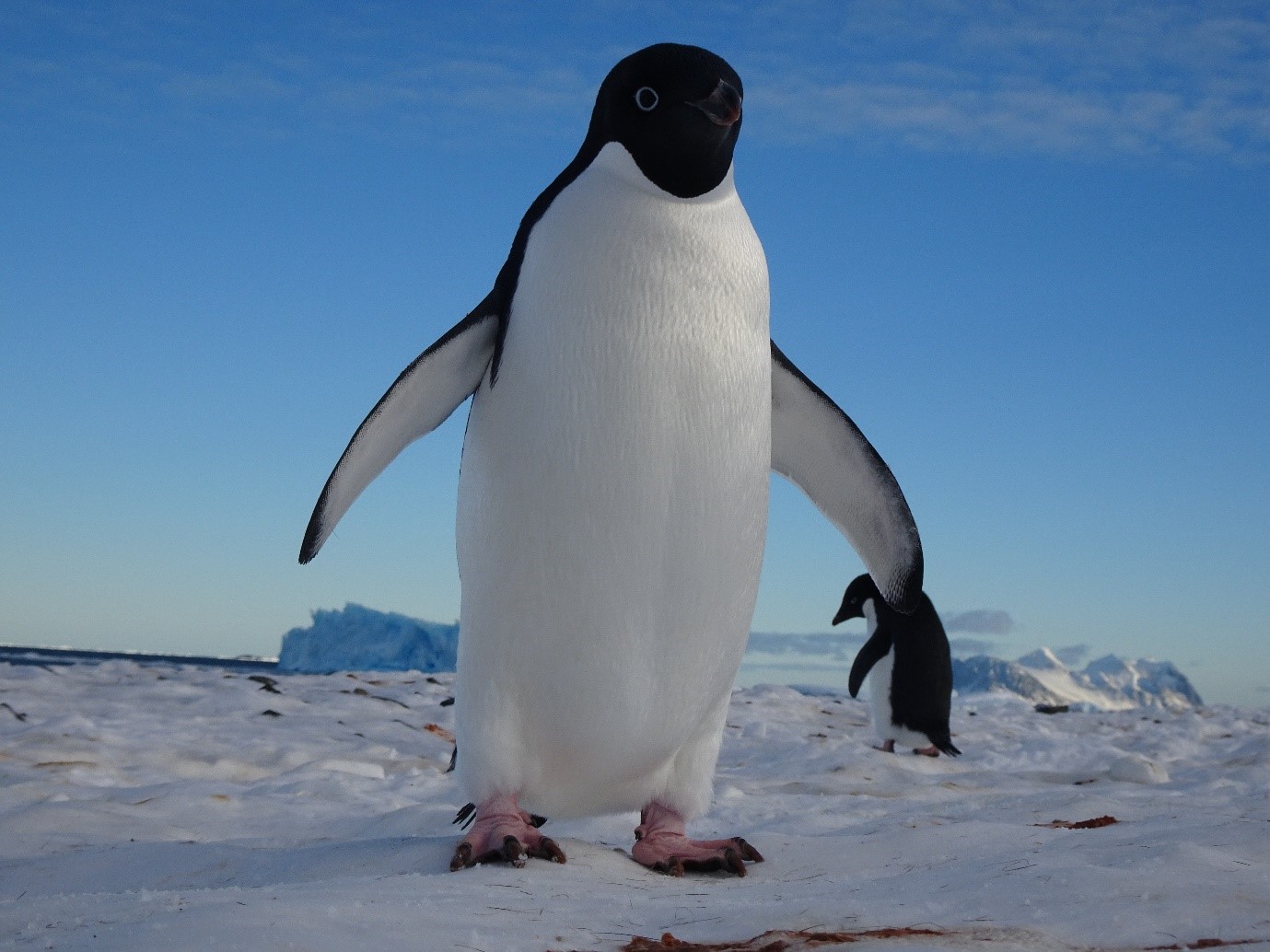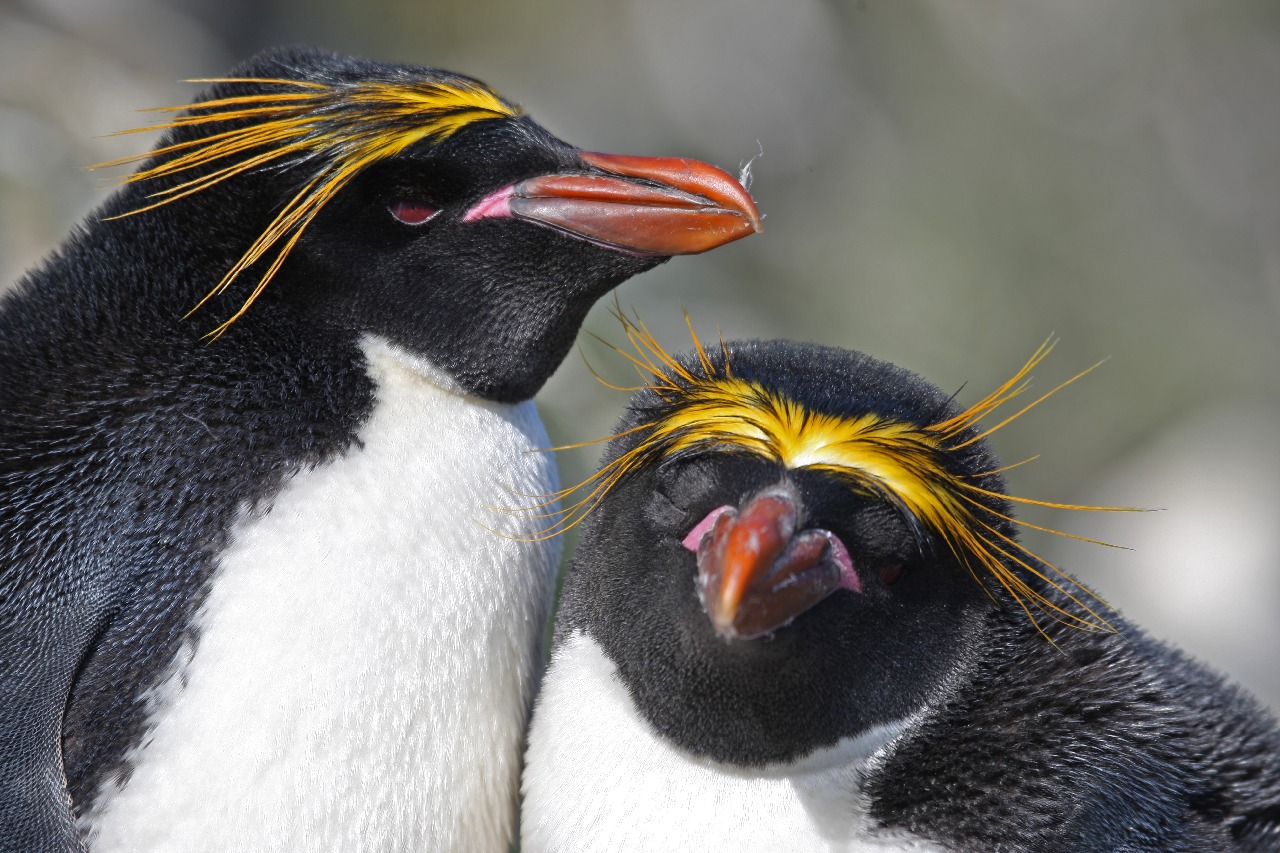Study sheds light on penguin evolution
Scientists have reconstructed more than 60 million years of evolutionary history to reveal how penguins became oceanic birds.
An international team of 40 researchers analysed the genomes – the complete set of DNA – of all living and recently extinct penguin species and combined this with the fossil record to gain new insights into the key events and processes that shaped the evolution of these iconic birds. The study, published today (19 July 2022) in Nature Communications, is the first comprehensive genetic study involving extinct and extant (living) penguin species.
The study revealed that penguin evolution was driven by changes in climate, and ocean currents. Scientists found ‘signatures’ in the penguin genomes that suggest flip-flopping between small populations in climate refugia – regions in which penguins could survive during periods when conditions everywhere else were unfavourable – and population growth and re-colonisation during periods when conditions improved. As temperatures dropped, penguins were forced further north, before moving back to the poles as temperatures warmed and habitats became available for re-colonisation.

Scientists also identified a suite of genes that potentially underpin some of the adaptations that allow penguins to thrive in some of the most unique environments on Earth, including Antarctica and the Southern Ocean. These adaptations include thermoregulation – the process by which animals maintain the optimum internal temperature – deep diving, underwater vision and factors controlling body size. The researchers discovered that penguins evolved very slowly compared to other birds, but believe that many of these key features associated with an aquatic life occurred early on in penguin evolution.
Professor Richard Phillips, a seabird ecologist at British Antarctic Survey, who is a co-author on the study, says:
“Although when most people think of penguins, they picture them among ice floes and being chased by leopard seals, penguins evolved to be aquatic creatures before the polar ice sheets formed! Over time, they evolved characteristics that allowed them to colonise a wide range of marine environments from the tropics to Antarctica. This paper provides a step change in our understanding of which genes underpin these different adaptations.”

Today, penguins are again under threat from climate change. The scientists say this research into understanding how past climate events impacted past population sizes is crucial in helping us understand how their populations may respond to future climate change.
The study is part of the international Bird Genome 10K project which aims to sequence the genome of all living bird species.
Cole, T.L., Zhou, C., Fang, M., et al (2022). Genomic insights into the secondary aquatic transition of penguins. Nature Communications 13(3912) https://doi.org/10.1038/s41467-022-31508-9 is available to read here.